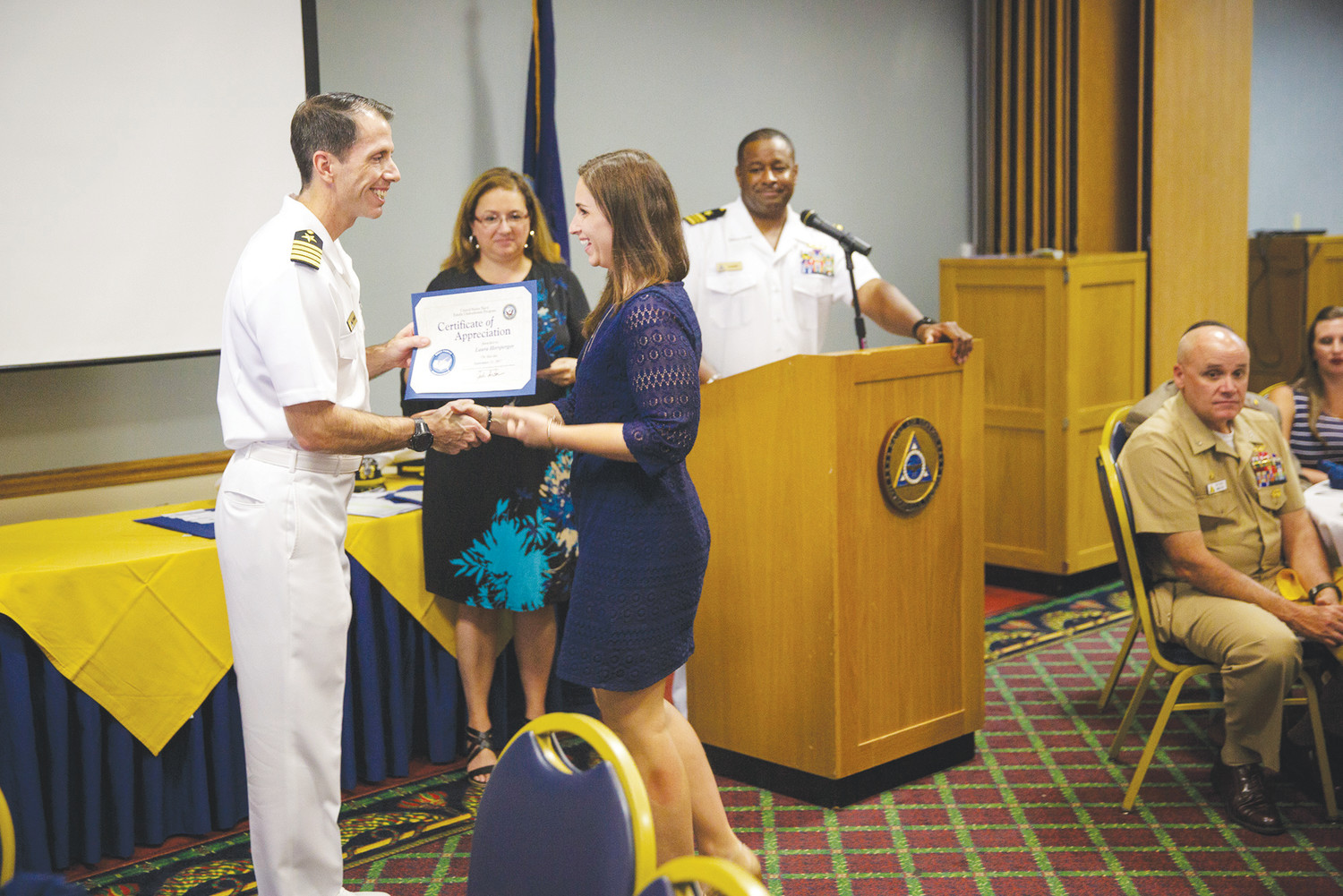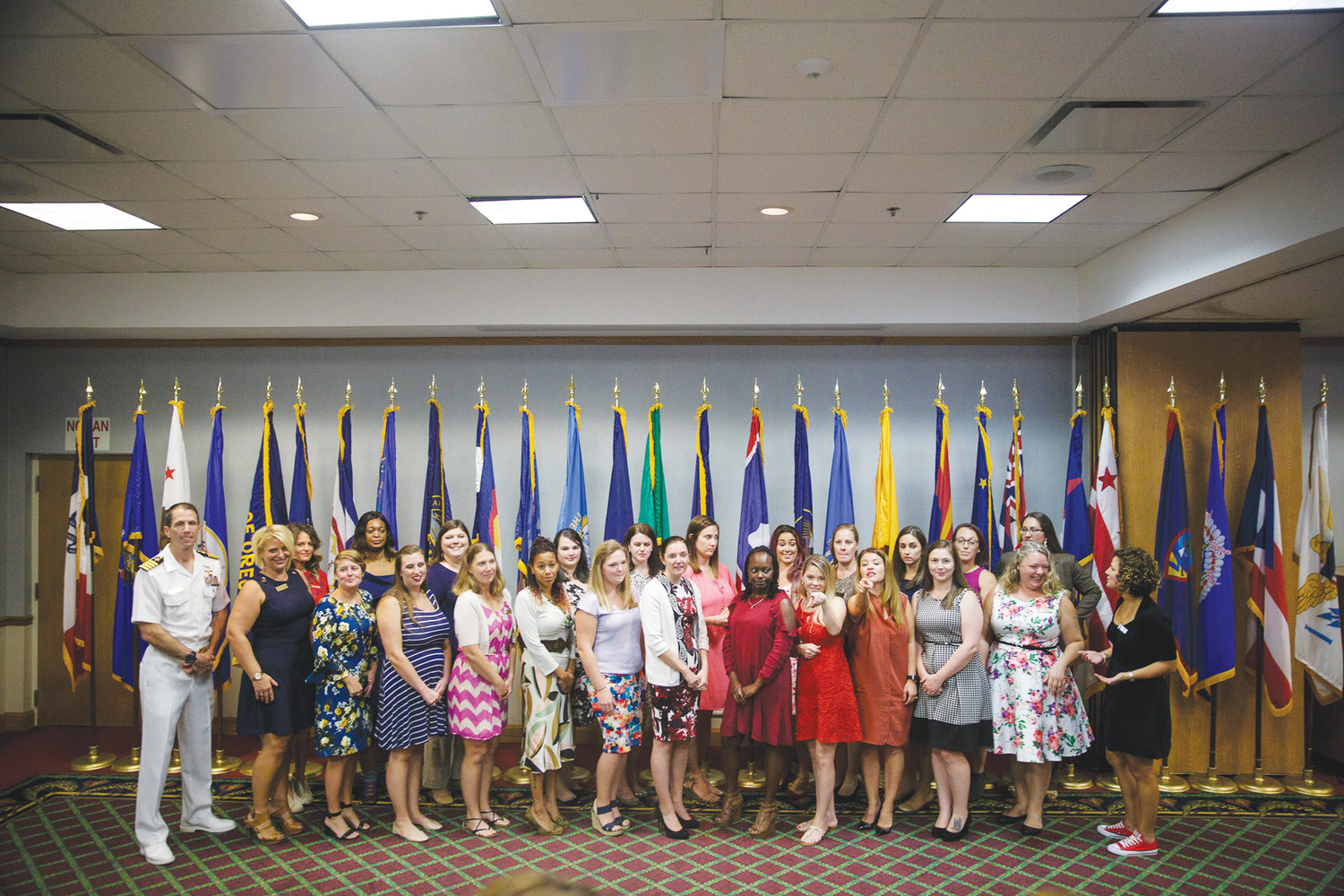Ombudsmen – ready for the call
JACKSONVILLE – The families of the men and women stationed at Naval Air Station Jacksonville often have questions about their sailors, pilots and officers, especially during new assignments or …
This item is available in full to subscribers.
Attention subscribers
To continue reading, you will need to either log in to your subscriber account, or purchase a new subscription.
If you are a current print subscriber, you can set up a free website account and connect your subscription to it by clicking here.
If you are a digital subscriber with an active, online-only subscription then you already have an account here. Just reset your password if you've not yet logged in to your account on this new site.
Otherwise, click here to view your options for subscribing.
Please log in to continueDon't have an ID?Print subscribersIf you're a print subscriber, but do not yet have an online account, click here to create one. Non-subscribersClick here to see your options for subscribing. Single day passYou also have the option of purchasing 24 hours of access, for $1.00. Click here to purchase a single day pass. |
Ombudsmen – ready for the call
JACKSONVILLE – The families of the men and women stationed at Naval Air Station Jacksonville often have questions about their sailors, pilots and officers, especially during new assignments or deployments.
They cannot call the commanding officer directly, and there isn’t anyone specific on the base payroll who can answer their questions – but there is a group of volunteers who work to keep a constant line of communication between the operations on the base and families at home.
These volunteers are part of the Navy Family Ombudsman Program, which has been an important part of maintaining morale among Navy families since its implementation in 1970 under the command of former Chief of Naval Operations Admiral E.R. Zumwalt. The original goal of the program was to avoid the spread of false information among families, and to keep the wives of Navy men stationed on ships in the know while their husbands were away.
Last Thursday, 29 of the 55 spouses who serve as ombudsmen were honored at a ceremony and luncheon on base.
“This is an amazing group of volunteers, people that dedicate themselves around the clock to helping sailors, while at the same time, going through the same situations that the other families are going through,” said Capt. Michael Connor, NAS Jax executive officer.
The term ombudsman comes from Scandinavian culture where it originally referred to a people’s’ representative who would keep a close eye on government operations and report back to citizens. While a Navy Ombudsman is still a representative, their duty is somewhat different.
“Their main thing is passing info about the base to families, similar to a newsletter,” said Jodi Arden of Fleming Island, director of the NAS Jax Ombudsman program. “They are the primary communication line between the command on base and families. They also pass back information to allow the command to be better informed.”
An ombudsman, first and foremost, is there to keep an open dialogue between Navy families and their service member’s commanding officer. They are used mostly during deployments, or during emergency or weather-related events, but can be called upon for any information sharing.
“This means a lot to them, and they’re not just used during deployments, but they really come into play during a deployment cycle where they are able to pass official information back to the families,” Arden said.
Their training prepares them for any and all questions that may be posed by family members, as well as communicating the families’ needs to the commanding officer should the situation require it.
“This is a great opportunity to serve the families of my husband’s squadron,” said Ombudsman Laura Hersperger of Oakleaf. “It’s especially important to communicate with new spouses coming to the Navy for the first time.”
Hersperger volunteered to be an Ombudsman after being asked by the commanding officer, which is the standard practice. The commanding officer knows his squadron and can select a spouse who would best represent his command to the families at home. Typically, the chosen spouses have some experience as a Navy spouse and know what it’s like to be at home during a deployment or assignment that takes the service member away.
After agreeing to serve, spouses undergo a three-day training session and then begin their service. An ombudsman will then volunteer their time as long as they wish, or until their spouse is reassigned or the squadron command changes.
Once a spouse becomes an ombudsman, they are expected to be “on call” throughout the day, but the actual amount of requests received varies between squadrons. Hersperger said there isn’t really a day-to-day schedule for an ombudsman, but they are there to take calls when needed.











